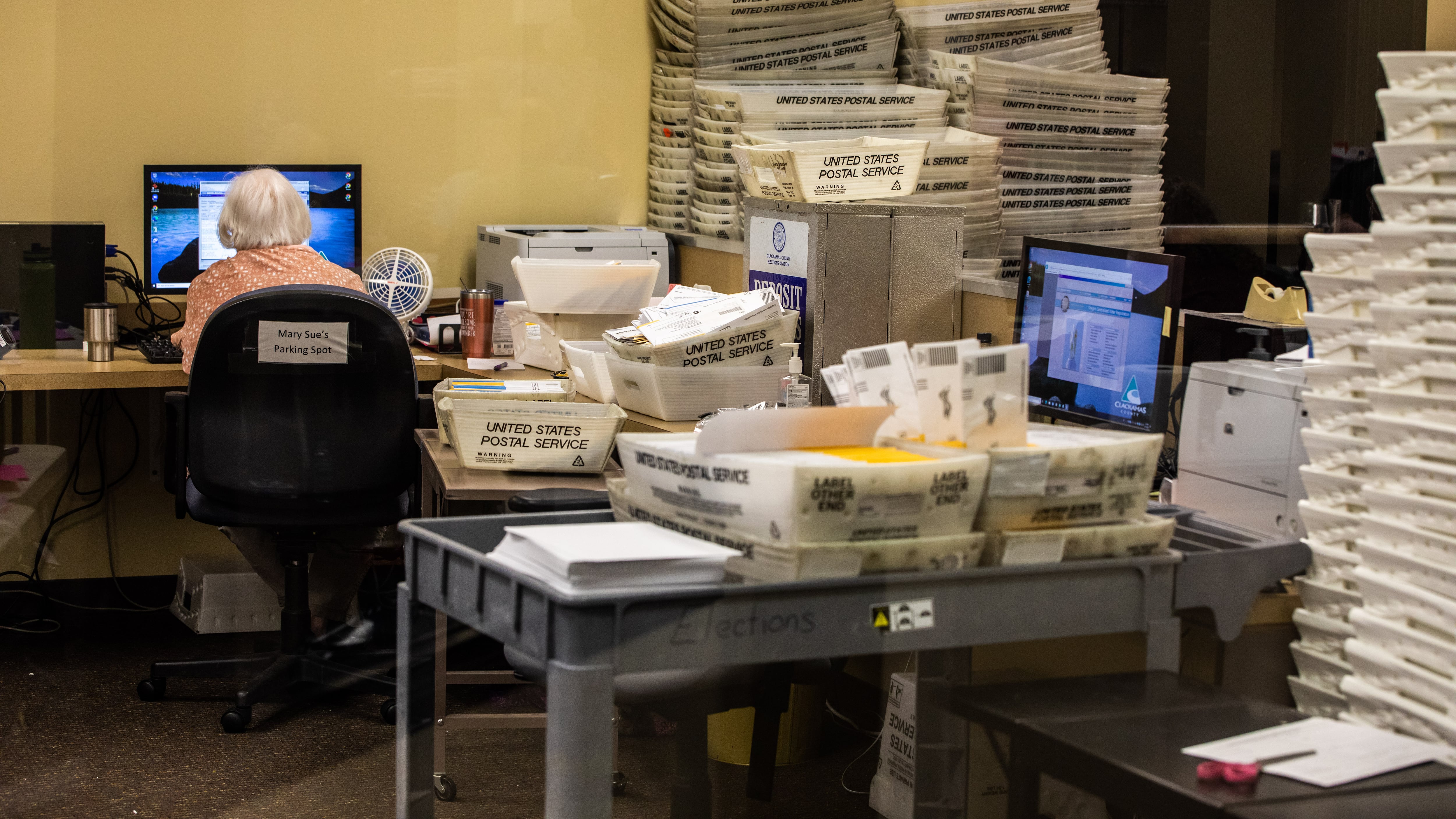This story was produced by the Oregon Journalism Project, a nonprofit newsroom covering the state.
A new lawsuit seeks to break the stranglehold Oregon’s two major political primaries have on legislative and statewide elections.
The nonprofit Our Primary Voice and one of its members, Mark Porter, a resident of Clackamas County, filed the lawsuit on June 25 in Marion County Circuit Court against the state and the state’s top elections official, Secretary of State Tobias Read.
In the lawsuit, Porter describes a fundamental conflict between the Oregon Constitution and state election laws.
The constitution, Porter notes, lays out the requirements for voting:
“A citizen is ‘entitled to vote in all elections’ if the citizen meets the three qualifications listed in [Article II, section 2(1) of the constitution]: age, residency, and registration,” the lawsuit says. “The Oregon Constitution does not list any other qualifications for a citizen to be entitled to vote in all elections.”
But state statutes, passed subsequent to the writing of the constitution, add additional requirements:
“Oregon Revised Statute 254.365(1) states: (1) An elector is not qualified or permitted to vote at any primary election for any candidate of a major political party, and it is unlawful for the elector to offer to do so... unless the elector is registered as being affiliated with one of the major political parties,“ the lawsuit says.
Porter’s argument—one that other critics of closed primaries have advanced for years—is that the closed primary law disenfranchises a large portion of the electorate. The lawsuit notes that 43% of registered Oregon voters do not belong to either the Democratic or Republican party.
As a result of Oregon’s Motor Voter law, which automatically registers Oregonians to vote when they obtain or renew a driver’s license, voter registration has increased. Most of those automatically registered voters do not belong to a major party and, back in 2022, nonaffiliated voters outnumbered registered Democrats.
Moreover, because of the way Oregon legislative or congressional districts are drawn and because of the geographic clustering of like-minded voters, few general-election contests are competitive.
“In such districts, the candidate who is elected to office is effectively determined by the primary election, not by the general election,” the lawsuit says. “And in many such districts, the majority party’s general election candidate runs unopposed.”
In addition, the state (i.e., all taxpayers) foots the bill for the primary elections, which means many taxpayers are paying for an election they are excluded from.
In previous years, various groups have tried various ballot initiatives and measures to open Oregon’s primaries, as California and Washington have done. But neither major party in Oregon has gotten behind the effort. Democrats in particular have vigorously opposed such changes. (Open-primary ballot measures failed in 2008 and 2014. A 2024 campaign failed to gather the number of signatures required to make the ballot.)
Now with the help of the Harrang Long law firm, which specializes in intersection of politics and policy, Our Primary Voices and Porter will present their critique of closed primaries in a different venue.
“The hallmark of democracy is the right of citizens to choose their government,” the lawsuit concludes. “When the state conducts closed elections in contravention of the Oregon Constitution and then restricts the general election to candidates approved in the closed elections, the citizens’ consent is nullified and government is not representative of the governed.”
As is their normal approach, the Secretary of State’s Office and the Oregon Department of Justice, which represents the state in court, declined to comment.
Clarification: This story has been updated to correct the name of the nonprofit that filed the lawsuit and add words omitted from ORS 254.365(1).

